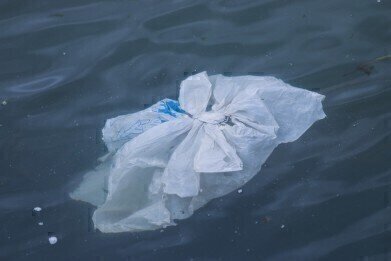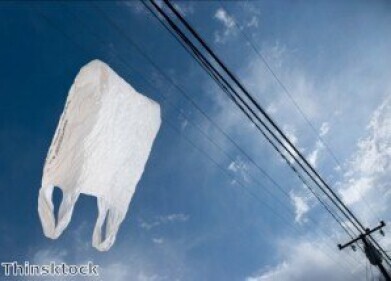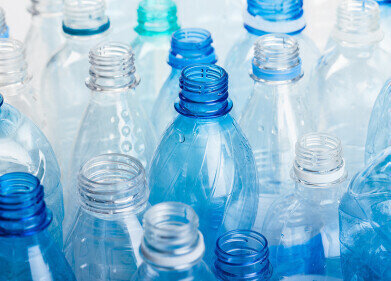Waste Management
EU Law to Reduce Billions of Plastic Bags Used Every Year
May 22 2015
The European Parliament has passed a directive to limit the use of plastic bags, in an attempt to reduce pollution. The EU law has been welcomed by environmental groups, but some critics’ say that countries should be able to set their own targets, and that they should not be mandatory.
What type of plastic bags are affected by the EU Directive?
The law specifically applies to lightweight plastic carrier bags that have a thickness of under 50 microns (0.05mm). These are the most commonly used bags in the EU, are less recyclable, and as such end up polluting seas and landfills.
The directive leaves EU member states with two choices on implementing the law:
- Reduce the annual average amount of lightweight bags used per citizen to 90 by the end of 2019, and 40 by the end of 2025.
- Or stop providing free lightweight plastic bags to shoppers by 2018.
Margrete Auken, a Danish MEP and Rapporteur on the issue for the Committee on the Environment, Public Health and Food Safety, said the move was a major step for the environment: “We are talking about an immense environmental problem, with hundreds of billions of plastic bags being used every year. We will make sure that action is taken. The [European] Commission says countries should do these things themselves, but they are not doing them themselves! This is a genuine win-win situation.”
However, others were not so happy about being told what to do. Irish MEP Luke Flanagan, from the European United Left political group, agreed with the premise of reducing the amount of lightweight plastic bags, but said that the underlying causes for increased use should also be addressed: “I agree with the concept of introducing taxes to reduce the consumption of plastic bags. It has been introduced in Ireland to great effect. However, the other side of the argument has to be looked at: what has it driven us to use? More paper bags, rather than... reusable bags. If you force member states to do something, they won't do it right, you do something because you want to do it! Leave it up to the member states.”
Europe uses 100 billion plastic bags every year
The new directive comes at a time when EU statistics reveal there are around 100 billion plastic bags used annually within Europe. This equates to 200 bags on average per citizen, and around 90% of these are of the lightweight variety.
More disturbingly, 89% of plastic bags are only ever used once. You can read about the European local government’s efforts to reduce and ban free plastic bags in the following article Europe's Local Governments Call for 80% Reduction and Ban of Free Plastic Bags.
Oxo-biodegradable bags are exempt from the directive at present, despite some concerns about their impact on the environment. There are experts that argue that these types of bags cost a lot of energy to manufacture, they only degrade in certain conditions, and some can leave behind toxic chemicals.
Pollution caused by plastic bags
Ms Auken gave several examples of the damage caused by plastic bags on the environment. She stated that in the North Sea, 70% of pollution comes directly from plastic, with plastic bags contributing to 70% of this. Karmenu Vella, the EU Commissioner for the Environment, Maritime and Fisheries, spoke about the time it would take for these lightweight plastic bags to break down naturally.
He stated that plastic bags can spend hundreds of thousands of years polluting the oceans and rivers as tiny micro particles: “Action is needed and the problem of marine pollution needs to be tackled. The Commission welcomes the agreement reached by co-legislators, saying that the agreement was possible through limiting the consumption of plastic bags. Through this new directive we can demonstrate that the EU can effectively respond to matters of concern.”
It is hoped that this new EU directive will encourage other countries to take proactive action on the overuse of plastic bags.
To read more about the effects of plastic waste on our environment read Are You Eating Plastic?
Events
Apr 22 2024 Hannover, Germany
Apr 23 2024 Kuala Lumpur, Malaysia
Apr 24 2024 Sao Paulo, Brasil
May 05 2024 Seville, Spain
May 13 2024 Munich, Germany













